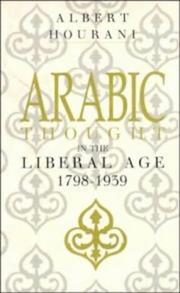| Listing 1 - 4 of 4 |
Sort by
|
Digital
Year: 2014 Publisher: Antwerp
Abstract | Keywords | Export | Availability | Bookmark
 Loading...
Loading...Choose an application
- Reference Manager
- EndNote
- RefWorks (Direct export to RefWorks)
History of Belgium and Luxembourg --- anno 1800-1899 --- anno 1900-1909 --- anno 1910-1919 --- anno 1920-1929 --- anno 1930-1939
Digital
ISBN: 9783034808316 Year: 2014 Publisher: Basel Springer, Imprint: Birkhäuser
Abstract | Keywords | Export | Availability | Bookmark
 Loading...
Loading...Choose an application
- Reference Manager
- EndNote
- RefWorks (Direct export to RefWorks)
The aim of this book is to present and analyze philosophical conceptions concerning mathematics and logic as formulated by Polish logicians, mathematicians and philosophers in the 1920s and 1930s. It was a remarkable period in the history of Polish science, in particular in the history of Polish logic and mathematics. Therefore, it is justified to ask whether and to what extent the development of logic and mathematics was accompanied by a philosophical reflection. We try to answer those questions by analyzing both works of Polish logicians and mathematicians who have a philosophical temperament as well as their research practice. Works and philosophical views of the following Polish scientists will be analyzed: Wacław Sierpiński, Zygmunt Janiszewski, Stefan Mazurkiewicz, Stefan Banach Hugo Steinhaus, Eustachy Żylińsk and Leon Chwistek, Jan Łukasiewicz, Zygmunt Zawirski, Stanisław Leśniewski, Tadeusz Kotarbiński, Kazimierz Ajdukiewicz, Alfred Tarski, Andrzej Mostowski and Henryk Mehlberg, Jan Sleszyński, Stanisław Zaremba and Witold Wilkosz. To indicate the background of scientists being active in the 1920s and 1930s we consider in Chapter 1 some predecessors, in particular: Jan Śniadecki, Józef Maria Hoene-Wroński, Samuel Dickstein and Edward Stamm.
Philosophy --- Mathematical logic --- Logic --- History of philosophy --- Mathematics --- filosofie --- geschiedenis --- wiskunde --- logica --- anno 1920-1929 --- anno 1930-1939 --- Poland

ISBN: 0521274230 0521258375 0511096984 110771298X 1107710448 0511801998 9780521274234 9780521258371 9780511801990 Year: 2014 Publisher: Cambridge Cambridge University Press
Abstract | Keywords | Export | Availability | Bookmark
 Loading...
Loading...Choose an application
- Reference Manager
- EndNote
- RefWorks (Direct export to RefWorks)
Arabic Thought in the Liberal Age is the most comprehensive study of the modernizing trend of political and social thought in the Arab Middle East. Albert Hourani studies the way in which ideas about politics and society changed during the nineteenth and the first half of the twentieth centuries, in response to the expanding influence of Europe. His main attention is given to the movement of ideas in Egypt and Lebanon. He shows how two streams of thought, the one aiming to restate the social principles of Islam, and the other to justify the separation of religion from politics, flowed into each other to create the Egyptian and Arab nationalisms of the present century. The last chapter of the book surveys the main tendencies of thought in the post-war years. Since its publication in 1962, this book has been regarded as a modern classic of interpretation. It was reissued by the Cambridge University Press in 1983 and has subsequently sold over 8000 copies.
Political science --- History. --- Arab countries --- Politics and government. --- Arts and Humanities --- History --- Political science - Arab countries - History. --- Arab countries - Politics and government. --- History of Asia --- History of Africa --- anno 1700-1799 --- anno 1800-1899 --- anno 1900-1909 --- anno 1910-1919 --- anno 1920-1929 --- anno 1930-1939 --- Arab states
Multi
ISBN: 9780748695898 9780748665785 9780748665792 9780748665808 0748689265 074866579X 0748665781 9781299584822 1299584829 0748665803 9780748665815 0748665811 0748695893 9780748689262 Year: 2014 Publisher: Edinburgh Edinburgh University Press
Abstract | Keywords | Export | Availability | Bookmark
 Loading...
Loading...Choose an application
- Reference Manager
- EndNote
- RefWorks (Direct export to RefWorks)
Yucel Yanikdag explores how, during the First World War, Ottoman prisoners of war and military doctors discursively constructed their nation as a community, and at the same time attempted to exclude certain groups from that nation. Those excluded were not always from different ethnic or religious groups as you might expect. The educated officer prisoners excluded the uncivilised and illiterate peasants from their concept of the nation, while doctors used international socio-medicine to exclude all those ́€" officers, enlisted men, civilians ́€" they deemed to be hereditarily weak.
History of Southern Europe --- anno 1910-1919 --- anno 1920-1929 --- anno 1930-1939 --- Turkey --- World War, 1914-1918 --- Medicine --- Nationalism --- Consciousness, National --- Identity, National --- National consciousness --- National identity --- International relations --- Patriotism --- Political science --- Autonomy and independence movements --- Internationalism --- Political messianism --- Health Workforce --- Prisoners and prisons, Turkish. --- History --- National characteristics, Turkish. --- Eugenics --- Homiculture --- Race improvement --- Euthenics --- Heredity --- Involuntary sterilization --- Turkish national characteristics --- Ottoman Empire --- Ottoman Empire, 1288-1918
| Listing 1 - 4 of 4 |
Sort by
|

 Search
Search Feedback
Feedback About
About Help
Help News
News